VSS Workshop for PhD Students and Postdocs:
Is there a strategy behind successful grant writing?
Sunday, May 17, 1:00 – 2:00 pm, Glades/Jasmine (Jacaranda Hall)
Moderator: Frans Verstraten
Discussants: Bart Anderson, Peter Bex, Allison Sekuler, Simon Thorpe
Research grant$ are difficult to get. For some parts of the world that is a clear understatement: your chance of going getting some money is probably higher in Las Vegas than in most national research funding agencies. For some of us it is crucial to get research funding, especially if you are in a soft money institute. Clearly, some colleagues are more successful than others. It is not just simply a random process. What are the secrets? In this workshop some colleagues will discuss their strategies, some successful, others not, and also give some insight in how review committees work. Moreover, they might answer all the questions you always wanted to ask (about funding that is…)
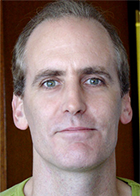 |
Bart Anderson
Bart is a Professorial Research Fellow in the psychology department at the University of Sydney. After completing postdoctoral training at Rutgers and Harvard, he received multiple grants from the NIH after joining the faculty at MIT. He has had continuous funding from the Australian Research Council since moving to Australia in 2003, including two senior research fellowships. |
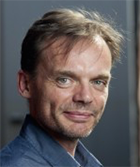 |
Peter Bex
Pete is a Professor of Psychology at Northeastern University in Boston Massachusetts and has worked in academic university departments, soft money research institutes and industry. He has been writing grants for nearly 20 years and reviews grants for organizations across 4 continents. His grant applications have been funded and rejected by government agencies, charities and corporations in the US and Europe |
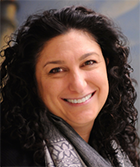 |
Allison Sekuler
Allison is a Professor in Psychology, Neuroscience & Behaviour and Associate Vice-President and Dean of Graduate Studies at McMaster University. Previously, she served as McMaster’s Associate Vice-President Research and Interim Vice-President Research and International Affairs; and she served on the VSS Board from 2005-2009. She has been funded continuously by Federal Granting Agencies since 1991, and also received funding from Provincial Agencies, Non-Profit Organizations, and most recently through an industry-related research project. Since VSS was founded 15 years ago, Allison received $5.5M in funding for research projects as a Principal Investigator, and has been a co-investigator on large collaborative grants funding more than $30M. She has served on grant review committees for Canadian and US Federal agencies as well as for Ontario agencies, and has led numerous sessions on successful grantsmanship for graduate students, postdoctoral fellows, and faculty. When her grant funding runs out, she plans to become a professional Hearthstone player. |
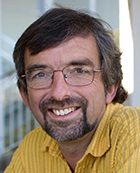 |
Simon Thorpe
Simon is director of the CerCo (Brain and Cognition Research Center) in Toulouse, France. He has spent 12 years as a member of the Brain, Behaviour and Cognition Committee of the CNRS that evaluates and recruits French scientists, and a further 10 years as a member of an Interdisciplinary commission. He has also been involved in several evaluation committees for the European Commission, and recently obtained a highly competitive ERC Advanced grant. |
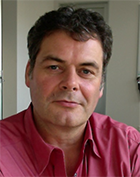 |
Frans Verstraten
Frans (now University of Sydney) funded most of his post-doc time by successfully applying for several competitive grants. Soon after he was appointed at Utrecht University in 2000, the Netherlands Organisation for Scientific Research awarded him a 1.65 million Euro Pioneer grant. Later, he collected a number of grants to support his research and his many PhD students. He was also a member of several grant review committees in different countries. He is the past-president of VSS and this is the fourth (and last) VSS-workshop he has organized. |
VSS Workshop for PhD Students and Postdocs:
Finding your path in graduate school
Sunday, May 17, 1:00 – 2:00 pm, Sabal/Sawgrass (Jacaranda Hall)
Moderator: Frank Tong
Discussants: Jody Culham, John Serences, Geoffrey Woodman, Yaoda Xu
Charting your path through graduate school may seem like a straightforward task with clearly marked sign posts: learn important scientific skills, work hard in the lab, run experiments and gather lots of data, write papers and get them published, then put together a hefty thesis. Really though, grad school consists of both well-defined and ill-defined problems to be solved, and the possible paths to doing well are diverse and many.
In this workshop, you will have the opportunity to hear from expert panelists who will describe their own personal adventures at navigating this exciting but sometimes mysterious and challenging terrain. We will learn how they honed in on particular research questions to pursue, the scientific tools they sought to acquire and master, cool experiments they tried that failed as well as those that worked, and the valuable “life lessons” they learned from their advisor, professors, labmates, or from their own experience. We will discuss the joys and challenges of scientific writing, the ups and downs of the review process, and how to scale the apparently daunting wall of the thesis by setting concrete goals for writing. Finally, we will discuss how successful navigation of the PhD will prepare you for embarking on the next stage of your career.
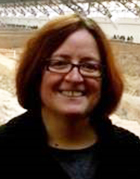 |
Jody Culham
Jody Culham is a Professor in the Department of Psychology at the University of Western Ontario. Her research relies on functional neuroimaging and psychophysical methods to address how vision is used to support perception and to guide actions. Jody received her PhD from Harvard University in 1997, and pursued postdoctoral work at Western University before starting her faculty position in 2001. Jody has received multiple awards for her research, including the CIHR New Investigator Award (2003), Western Faculty Scholar Award, (2008), and the NSERC E. W. R. Steacie Memorial Fellowship (2010). |
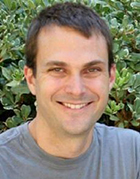 |
John Serences
John is an Associate Professor in the Department of Psychology at UC San Diego. His research relies on psychophysics, computational modeling, EEG, and fMRI to investigate how behavioral goals and other attentional factors influence perception, memory and decision making. He received his PhD from Johns Hopkins University in 2005, and pursued postdoctoral research at the Salk Institute before beginning his position as assistant professor in 2007. He is the 2015 recipient of the VSS Young Investigator Award. |
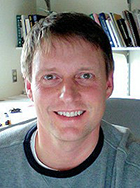 |
Geoffrey Woodman
Geoff is an Associate Professor in the Department of Psychology at Vanderbilt University. His research uses behavioral methods, electrophysiological recordings, imaging, and causal manipulations of the primate brain to understand visual attention, working memory, and cognitive control. He received his PhD in 2002 from the University of Iowa, and then pursued postdoctoral research at Vanderbilt before beginning his faculty position in 2007. He is an Associate Editor at JEP:HPP, supported by grants from the National Eye Institute, and the 2012 recipient of the Young Investigator Award from VSS. |
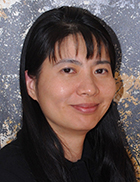 |
Yaoda Xu
Yaoda is an Associate Professor in the Department of Psychology at Harvard University. Her research focuses on how the human brain extracts visual object information from multiple levels of processing and how task-relevant information is represented in higher brain areas. She received her PhD from MIT in 2000, and pursued postdoctoral research at Harvard, MIT and Yale before beginning her faculty position at Harvard in 2008. Her research is supported by the National Eye Institute. |
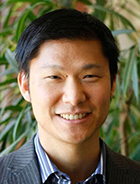 |
Frank Tong
Frank Tong is a Professor of Psychology at Vanderbilt University. He is interested in understanding the fundamental mechanisms underlying visual perception, attentional selection, object processing, and visual working memory. He has received multiple awards for his research advances (including the VSS YIA award), for his work on fMRI decoding of visual and cognitive states. He particularly enjoys working with students and postdocs as they carve their path towards scientific discovery and independence, and currently serves as a VSS board member. |
